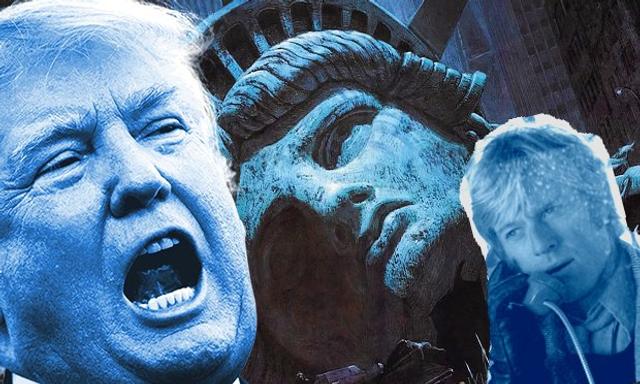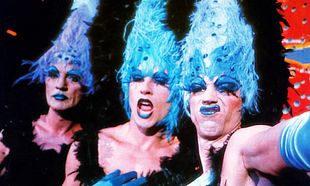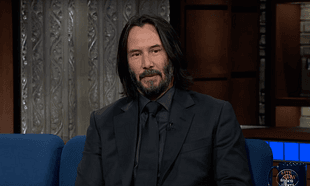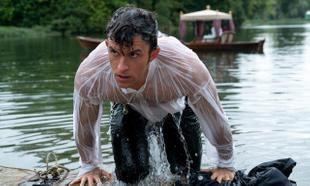Since the rise of Richard Nixon, Watergate, the Vietnam War and subsequent events inbetween, films have always mirrored the landscape in which they're created.
Throughout the '70s, paranoid thrillers flourished with the likes of The Parallax View, Three Days Of The Condor and Francis Ford Coppola's The Conversation all capturing the palpable sense of tension and fear of a sinister government looming over all. Directors and writers like Alan J. Pakula and Lorenzo Semple Jr. didn't have to look too far for inspiration, what with real-life villains such as G. Gordon Liddy, E. Howard Hunt and Richard Nixon providing rich material to draw upon. This wasn't limited to the U.S., of course.
Stanley Kubrick's A Clockwork Orange - adapted from Anthony Burgess' novel - imagined a future England where juvenile delinquency reached proportions that a brutal response was merited. George Miller's grungey chase movie, Mad Max, imagined an Australia where society had almost completely broken down through lawlessness. John Carpenter's Escape From New York focused on how irrelevant the US Presidency, personified by a sickly but vain-glorious Donald Pleasance, was. Carpenter admitted that he wrote the film in response to the growing cynicism of the Nixon era and how disillusioned America had become with its political institutions.
In the '80s, mainstream cinema slanted heavily in favour of Ronald Reagan, with jingoistic films like Rambo and the output of Cannon Group helped to turn popular culture to a favourable view. It took non-American directors to see that there was something rotten at the core of America. Terry Gilliam's Brazil, which borrowed heavily on George Orwell's 1984, imagined a bureaucratic society in a dystopic world that was collapsing in on itself. Paul Verhoeven's Robocop took the excesses of American culture - capitalism, consumerism, sex, violence - and turned them up ever so slightly, making for a garish and bloody spectacle. Even as far flung as Asian cinema imagined a world on the edge of nuclear devastation, with Akira showing a Neo-Tokyo gripped by pollution, terrorism and the belief that the world was ending.
The '90s saw a fall-off in dystopian films, with only the likes of Judge Dredd reflecting a negative view of the world. Dredd was, of course, based on the British 2000AD comics, which were written during the reign of Margaret Thatcher in the '80s. Films in the '90s were more hopeful than they had ever been and the idea of a darker future became harder to realise for directors and writers.
It wasn't until the inauguration of George W. Bush in 2001 and 9/11 that films began to turn to a more darker and dystopic tone. 2002's Equilibrium, with Christian Bale and Sean Bean, foresaw a world where emotion had been drowned out via drug use and the glistening citystate was patrolled by black-hooded soldiers. Alfonso Cuaron's Children Of Men saw a militaristic government rule over England as humanity faced into the reality of its extinction. Mike Judge's Idiocracy, meanwhile, took a more specific aim at American culture and, specifically, George W. Bush. Though comedic and satirical in its tone, Idiocracy nevertheless showed a dark future for America if it continued to be ruled by unintelligent leaders like Bush.
V For Vendetta, another '80s comic adaptation made relevant for the '00s, saw a far-right nationalist leader take hold of England who then shuttered it off from the world. 2008's The Hunger Games, though inspired in part by Greek mythology, also drew from the Iraq War and the idea of youth forced to fight for the spectacle of others and the idea of a far-reaching government that was indifferent to the people's demands. The only dystopian film in the era of Obama was 2013's The Purge, which focused more on American culture as the enemy than its government. The idea of violence becoming so prevalent in society that it has to be legalised for a single day is still very resonant.
What with the recent election of Donald Trump and the alarming rhetoric spouted during his campaign, it seems increasingly likely that a new wave of dystopian films is on the horizon. Already, Blade Runner: 2049 and War For The Planet Of The Apes are in production and speak to the idea of a darker future for humanity. Trump's demands and statements about torture, deportation and / or registering of Muslims and nuclear weapons could have been easily plucked from a screenplay. Even Trump's chief adviser, Stephen Bannon, compared Trump's presidency and administration to Darth Vader.
Of course, it remains to be seen what the Trump era will bring, but it looks increasingly like dystopian films will be coming back into fashion in the next four to eight years.










































































